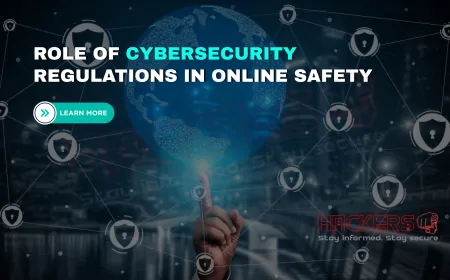How to Balance Azure Certifications with a Full-Time Job
Juggling a full-time job while chasing Azure certifications can feel like walking a tightrope one wrong step, and everything tumbles. But imagine emerging on the other side with new skills, a shiny certification, and a boost to your career without burning out. In 2025, with cloud computing booming, Azure certs like AZ-104 or AZ-305 are more valuable than ever, opening doors to better roles and pay. I've been there myself, squeezing study sessions into lunch breaks and weekends, and it paid off. This guide shares real, practical advice to help you balance it all. Whether you're a beginner dipping into cloud tech or a pro aiming higher, we'll cover strategies to make it work without sacrificing your sanity or job performance. Let's turn that overwhelming goal into a manageable plan.

Table of Contents
- Why Balance Azure Certifications with Work?
- Assessing Your Current Situation
- Time Management Strategies
- Building a Realistic Study Plan
- Choosing the Right Resources
- Tips for Efficient Studying
- Avoiding Burnout and Staying Motivated
- Integrating Learning with Your Job
- Real-Life Success Stories
- Common Challenges and Solutions
- Conclusion
- FAQs
Why Balance Azure Certifications with Work?
In today's job market, staying competitive means continuous learning. Azure certifications validate your skills in Microsoft's cloud platform, which powers countless businesses. But why pursue them while working full-time? For starters, they can lead to promotions or new opportunities without quitting your job. Many employers even reimburse exam fees or offer study time, turning it into a win-win.
Balancing both builds discipline and shows initiative. Think about it: employers value self-starters who upskill on their own. Plus, applying what you learn directly to your work can improve your performance, like optimizing cloud resources in your current role. However, it's not easy full-time work leaves limited energy. The key is smart planning, which we'll dive into next.
Certifications like AZ-900 (fundamentals) are entry-level, perfect for beginners, while advanced ones like AZ-400 (DevOps) require more commitment. The payoff? Higher salaries Azure pros often earn 20-30% more. But rushing can lead to failure or exhaustion, so balance is essential.
Assessing Your Current Situation
Before diving in, take stock. How many hours do you work weekly? Include commute, family time, and hobbies. Be honest about your energy levels some days, you're sharp after work; others, not so much.
Evaluate your starting point. If you're new to Azure, begin with basics. Use free assessments on Microsoft Learn to gauge knowledge gaps. Consider your learning style: do you prefer videos, reading, or hands-on? This shapes your approach.
Factor in life commitments. Kids, side gigs, or health issues? Adjust expectations. Set realistic goals, like one cert every 3-6 months. This self-assessment prevents overwhelm and sets a strong foundation.
Time Management Strategies
Time is your scarcest resource. Start with tracking: log a week to see where time goes social media? Cut it down. Use tools like Google Calendar to block study slots.
Prioritize: Focus on high-impact tasks at work first, then study. Techniques like Pomodoro (25 minutes focused, 5-minute break) help maintain concentration after long days.
Delegate where possible at home or work. Batch tasks: Study similar topics together to build momentum. Remember, quality over quantity; 30 focused minutes beat two distracted hours.
Building a Realistic Study Plan
A good plan fits your life. Aim for 5-10 hours weekly, spread out. Weekends for deeper dives, weekdays for reviews.
Break certs into modules. For AZ-104, divide into governance, storage, etc. Set milestones: Finish module one by week two.
Here's a sample 12-week plan for AZ-104 in a table:
| Week | Focus Areas | Study Time (Hours/Week) | Activities |
|---|---|---|---|
| 1-3 | Identities and Governance | 7 | Modules on Microsoft Learn, basic labs |
| 4-6 | Storage and Compute | 8 | Videos, hands-on with Azure portal |
| 7-9 | Networking and Monitoring | 7 | Practice tests, forum discussions |
| 10-12 | Review and Mocks | 10 | Full mocks, weak area focus |
Adapt this life happens. Review weekly, adjust as needed.
Choosing the Right Resources
Free resources abound. Microsoft Learn: Interactive, cert-aligned paths. Azure free account: Practice without cost.
- Videos: YouTube channels like John Savill for clear explanations.
- Books: Exam Ref series for depth.
- Practice: Whizlabs or Tutorials Dojo for mocks.
- Communities: Reddit r/Azure, LinkedIn for advice.
Avoid overload—pick 2-3 sources. If budget allows, courses on Udemy (often on sale).
Tips for Efficient Studying
Study smart: Active recall test yourself instead of re-reading. Flashcards for terms like RBAC (Role-Based Access Control—assigning permissions).
Multitask wisely: Listen to podcasts during commutes. Group study: Virtual sessions with peers.
Use downtime: Lunch breaks for quick modules. Set boundaries: Study in dedicated spots to focus.
Avoiding Burnout and Staying Motivated
Burnout sneaks up. Signs: Fatigue, irritability. Prevent with breaks, exercise, sleep.
Motivate: Track progress, reward milestones (e.g., coffee after a module). Share goals with friends for accountability.
If overwhelmed, pause better slow than quit. Remember your why: Career growth, better pay.
Integrating Learning with Your Job
Blend them: Apply concepts at work, like suggesting Azure improvements. Seek employer support: Training budgets, study leave.
Time off: Use PTO for exam prep. Network internally: Join Azure-focused groups at work.
Real-Life Success Stories
Take Sarah, a sysadmin who studied evenings for AZ-104. Passed in 4 months, got promoted. Or Mike, balancing family—used weekends, now Azure architect.
These show it's doable. Key: Consistency, not perfection.
Common Challenges and Solutions
Challenge: No time. Solution: Micro-learning—10-minute sessions.
Distractions: Use apps like Focus@Will. Motivation dips: Revisit goals.
Technical issues: Free resources help. Family support: Communicate needs.
Conclusion
Balancing Azure certifications with a full-time job is challenging but rewarding. We've explored why it's worth it, assessing your situation, time strategies, plans, resources, efficiency tips, burnout prevention, work integration, stories, and challenges. With consistency and smart approaches, you can achieve your goals without sacrifice. Start small, stay committed the cloud career boost awaits. You've got this!
FAQs
Is it possible to get Azure certified while working full-time?
Yes, with proper planning and 5-10 hours weekly, many succeed in 3-6 months.
What Azure cert should I start with?
AZ-900 fundamentals if new; it's beginner-friendly and builds basics.
How much time per week for studying?
Aim for 5-10 hours, adjustable based on your schedule and cert level.
Are free resources enough?
Yes, Microsoft Learn and Azure free account cover most needs.
What if I get burned out?
Take breaks, exercise, and reassess your plan to reduce load.
Can my employer help?
Often yes—ask about reimbursement or study time policies.
How to stay motivated?
Track progress, set rewards, and remember career benefits.
What's a good study plan length?
8-12 weeks for associate certs, longer for expert.
Do I need prior experience?
Not for fundamentals; associate levels assume some IT knowledge.
How to practice hands-on?
Use Azure free tier to build and test resources.
What if I fail the exam?
Retake after 24 hours; use it as learning experience.
Are Azure certs worth the effort?
Yes, they boost resumes and salaries in cloud roles.
How to manage family and study?
Communicate, schedule family time, and involve them in goals.
What tools for time management?
Calendars, Pomodoro apps, to-do lists like Todoist.
Can I study during work hours?
If allowed, use lunch breaks; otherwise, evenings/weekends.
How many certs per year?
2-4, depending on complexity and your pace.
What's the cost of Azure exams?
$99-$165 USD per exam, plus study materials.
How to choose resources?
Match your style videos for visual, labs for practical.
What if work is demanding?
Prioritize work, study in short bursts, extend timeline.
Do certs expire?
Renew annually via online assessment.
What's Your Reaction?










































































